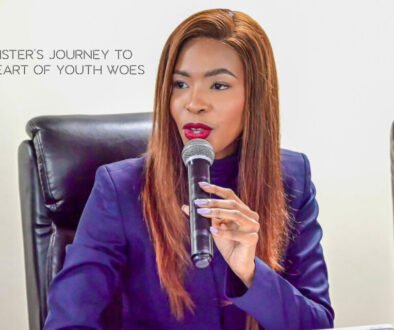Feminists applaud rollout of free pads

In a landmark move, President Duma Boko has launched Botswana’s National Sanitary Pads Distribution Program, a bold initiative aimed at addressing period poverty and supporting adolescent girls across the country.
Period poverty has forced many young girls in Botswana to miss school simply because they cannot afford menstrual hygiene products, a situation that has drawn concern from UNICEF and the United Nations. With the new administration at the helm, the government has committed P69 million to tackle this issue head-on.
Speaking at the official launch, President Boko described young women as “emblems of the future,” affirming their rightful place in decision-making spaces. The program is expected to benefit nearly half a million girls, including those with disabilities, marking a significant milestone not only in public health but also in advancing human rights.
The Bereka Mosadi Association praised the initiative, calling it a historic and transformative step toward gender equity and human dignity.
“This policy not only confronts the long-standing challenge of period poverty, but it also recognizes menstrual health as a fundamental human rights issue, one that affects education, public participation, and the overall well-being of women and girls,” the association stated.
They emphasized that period poverty has long acted as an invisible barrier to education and equality, particularly for girls in disadvantaged communities. By eliminating this obstacle, the government is actively dismantling menstrual stigma and promoting equal opportunities for growth and development.
The Association added that the initiative reflects a progressive, human rights-centered approach to governance, one that prioritizes inclusion, social justice, and the well-being of all citizens. By aligning with global standards such as the UN Sustainable Development Goals, especially Goals 3, 4, and 5 related to health, education, and gender equality, Botswana is setting an example for the region and beyond.
“We celebrate this achievement and encourage continued investment in menstrual education, water and sanitation infrastructure, and public awareness to ensure the program’s lasting impact,” the statement concluded.


In a landmark move, President Duma Boko has launched Botswana’s National Sanitary Pads Distribution Program, a bold initiative aimed at addressing period poverty and supporting adolescent girls across the country.
Period poverty has forced many young girls in Botswana to miss school simply because they cannot afford menstrual hygiene products, a situation that has drawn concern from UNICEF and the United Nations. With the new administration at the helm, the government has committed P69 million to tackle this issue head-on.
Speaking at the official launch, President Boko described young women as “emblems of the future,” affirming their rightful place in decision-making spaces. The program is expected to benefit nearly half a million girls, including those with disabilities, marking a significant milestone not only in public health but also in advancing human rights.
The Bereka Mosadi Association praised the initiative, calling it a historic and transformative step toward gender equity and human dignity.
“This policy not only confronts the long-standing challenge of period poverty, but it also recognizes menstrual health as a fundamental human rights issue, one that affects education, public participation, and the overall well-being of women and girls,” the association stated.
They emphasized that period poverty has long acted as an invisible barrier to education and equality, particularly for girls in disadvantaged communities. By eliminating this obstacle, the government is actively dismantling menstrual stigma and promoting equal opportunities for growth and development.
The Association added that the initiative reflects a progressive, human rights-centered approach to governance, one that prioritizes inclusion, social justice, and the well-being of all citizens. By aligning with global standards such as the UN Sustainable Development Goals, especially Goals 3, 4, and 5 related to health, education, and gender equality, Botswana is setting an example for the region and beyond.
“We celebrate this achievement and encourage continued investment in menstrual education, water and sanitation infrastructure, and public awareness to ensure the program’s lasting impact,” the statement concluded.




